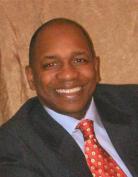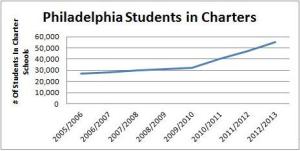“Who will be the first to step up and earn our students’ trust and prove that our children are the most important? Who will start a new era of trust to create a public education model we all can take pride in?”
Trust is an important aspect in all relationships. Lack of trust has the ability to destroy the greatest of friendships and in the past lead to wars and death. Being able to trust someone will influence a person’s decisions, and attitude, toward an entity or institution.
The School District of Philadelphia has a trust issue. As president of Lea Elementary’s Home and School Association, I hear this all the time – and more now than ever.
In families the most precious commodity is their children. They represent the opportunity and possibility to repair past mistakes guardians and parents have made concerning their own life choices. In them adults see the future and a chance to do great things, representing pride to the family. Education has always been the path forward or out of current circumstances depending on what obstacles individual families face. The fact that there is such an exodus from the traditional public schools in certain communities to charter schools has much to do with the trust factor.
In the past, families who had means or were willing to sacrifice had limited choices when the local public institution was not meeting their needs. Parochial schools were a choice that could fit the budget needs of middle class, or lower middle class families with some belt tightening. More well-to-do homes had the option of private schools, but with fees in the five-figure range this was out of reach for the average family. The advent of the Charter Model has provided a free option and the aggressive marketing campaign of charters has promoted the idea that students might receive a better education than either the neighboring public school or parochial school.
Charters have decimated both the parochial schools, which charge tuition no matter how low, and local public schools, who see their populations cannibalized. Families who are in struggling schools get pulled into the debate while seeking something “better” for their children. When they leave for “greener” pastures in charter schools, their departure hurts local schools.
This entire paradigm has been created by the lack of trust which has developed between parents and the School District of Philadelphia. This lack of trust prevents facts from being evident and allows rhetoric by many sides to replace the truth.
A matter of trust
In his book The Speed of Trust, management consultant Stephen Covey talks about how Trust, or the lack of, can make or break governments, institutions, relationships and even countries. He speaks of core beliefs and behaviors which impact trust between people and entities. Some include Demonstrating Respect, Transparency, Practicing Accountability, Keeping Commitments, and Listening First. The School District has been lacking in all of these.
Instead the district has taken on the management philosophy of people like Frederick Taylor who in the early 1900s established his Principles of Scientific Management which depicted workers as lazy and people who do not enjoy their jobs. His conclusions were that management should break down work into its smallest possible tasks and supervise every aspect of it. He determined that workers were driven by monetary incentives and should only be paid for performance over a set amount of time. The thought was that employees should not be trusted with any significant responsibilities.
This has led to Scripted Programs instead of meaningful teaching and a push to create pay-for-performance models for teachers. Merit pay sounds great but it ignores the circumstances and discrepancy in resources that some schools face, among other factors. With the push to create the same structures in schools as in businesses, a move is on to create for-profit like school/business formations exploiting the seemingly purposeful dysfunction in education.
But if it is a business model people are looking for, why not look at Berkshire Hathaway and a highly respected person in the business community, Warren Buffett? His philosophy is to put good people in place and let them do what they do best. He trusts them to perform in a world which has taken some of the ideas of “Taylorism” to heart. Considering Mr. Buffett’s outstanding success and noting how many companies have changed their mode of thinking toward worker friendly spaces, it is time for the District to change the way it works.
Charters and the lack of trust
Students, Parents, Teachers, and Citizens have lost trust due to the ever changing reform schemes that have come to fore over many years along with constant budget crisis scenarios. The effect of this lack of trust can be seen in Philadelphia ranking second among large districts in the nation with the number of children attending charters. Over 1/3 of our students are in charters today, and this number rises every year despite the fact there are a lot of questions about whether charters perform for all students.
(School District data depicted on chart above)
Parents are not “choosing” charters in the way that most people think about making positive choices. They are being driven out of the public system, having lost trust because of the inconsistency in their local schools, the non-transparent way school closings have been handled and a history of condescending attitudes by people at the school district or local school staff.
Students have lost many of the resources important to them at the same time they are being pressured to perform with less. Many teachers feel themselves being treated as less than professionals particularly around their contracts and support from management. The community feels helpless as the many entities fight over turf while children suffer. They wonder if they should risk participating in the system or move out of the city to “better” school environments.
Everyone bears responsibility for the current crisis in the district. The school district’s dysfunctional and arrogant approach toward reform turns everyone off, while too many parents lose their voice through apathy and lack of involvement. Teachers break trust when they fight sensible changes to address the number of bad teachers they know are out there hurting children. Meanwhile elected officials treat our students as “others” because they just are not facing our situation. Only two council members have children in the public schools; the ratio is no better when looking at our state representatives and senators. This leaves the community standing at the sidelines unsure of what to do.
Learning to build trust
But we can change this.
Our actions can lead to more trust. Only trust can help us out of this constant feeling of hopelessness. Only earned trust can save our public school system.
The district can change this present situation by establishing real and comprehensive collaboration with parents. Not a dialogue directed and controlled by School District personnel but by listening and implementing suggestions from the huge brain trust that is within the parent population. Or as Stephen Covey would suggest: respect, transparency, accountability, and, the most important part of communication, listening.
Who will be the first to step up and earn our student’s trust and prove that our children are the most important?
Who will start a new era of trust to create a public education model we all can take pride in?
Who will be the first to make the decision that children come first instead of it being a slogan with no teeth?
All of those who say they are working for the students of Philadelphia Public Schools must first earn trust through commitment and sacrifice, no matter what constituency they represent. The cost of this lack of trust is bankrupting the system and the responsibility of all involved.
Maurice Jones is a member of the Leadership Collective of Parents United for Public Education. He is a father and the president of the Henry Lea Elementary School in West Philadelphia.





Mr. Jones, I agree that there is an element of mistrust within the school district, and for the most part agree with your points. However, as a SDP retired teacher, I cannot agree that changes to tenure and seniority will necessarily improve ANYTHING regarding good teaching in the public schools. The abolition of seniority is an open invitation for an administrator to get rid of an experienced teacher with an advanced degree – a previously-sought-out “highly qualified” teacher who makes more money, and replace that teacher with a cheap TFA graduate who has less than 5 weeks experience teaching.They may be younger, but they have not gone through the myriad of child development and methods course that teacher-preparation candidates take. An established teacher usually has a community trust and knows and respects the culture of their school. To lay off counselors that have worked at gaining the trust of their charges and parents, and to replace them instead with new faces who have no previous contact with the emotionally fragile students, is a big mistake. Tenure is due process. In Philly that’s what it is. If someone wants to fire you, they have to say why and give you a chance to respond/explain. Eliminating tenure will eliminate the teachers’ right to defend themselves. Would you want to work under those conditions?
You stated, “The district can change this present situation by establishing real and comprehensive collaboration with parents. Not a dialogue directed and controlled by School District personnel but by listening and implementing suggestions from the huge brain trust that is within the parent population. Or as Stephen Covey would suggest: respect, transparency, accountability, and, the most important part of communication, listening.”
I submit that the School District also needs to show respect, transparency, accountability, and listening to the teachers also. Most of that is lacking at the moment for both parents AND teachers.
Thank you Anne for creating this dialogue but as you will see in the text of my posting I spoke about “teachers not being treated as professionals” in preface to my comments about “fighting sensible change” to repair the issue with some of the poor teachers who exist. Nowhere did I suggest a change in seniority. Sensible change could mean many things but most importantly it leads with, sensible.
I brought my son to his present school because of a great teacher, and I donate my time there on a continuous basis, 5+ years), because of great teachers. The debate cannot be either or, but instead all. We all have a part to pay in the present crisis concerning education.
I understand your angst and emotion about this issue but I think it has caused you to read into what I am saying. I am speaking as a parent. We don’t have a side except our kids. The positioning that happens with politicians, administrations, and teachers does nothing to help with the education of our children. I support teachers but I also have been around long enough to have seen some poor teacher who are hurting children. The change has to start with teachers not administration. The vast majority of teachers are great but the population who are poor really hurt the repetition of the whole with us parents.
My suggestion was not particularly change determined by the administration, but instead change by the teaching body who are dedicated to students. Teachers should not tolerate other poor teachers and we as parents, along with our students do not deserve the lost years that result from a poor teacher.
As I also mentioned politicians have a role and illustrated how so little of them use the system but make decisions concerning it. As you understand as a teaching professional parents also have a huge part to play that many have not been adequately fulfilling and that needs to change. So it is “our” system and we all have a part in improving it.
Otherwise, there will continue to be the exodus to Charters whether or not there is data that says it is an improvement because parents end up frustrated and want a change. I am suggesting that we need trust across the constituencies or that situation will not continue to escalate.
I am a huge supporter of teachers, know and support every teacher in my son’s school from Pre-K to 8th. I believe that there are two people in your life who impact you the most, teachers and parents. I also know the damage that a poor parent can cause as well as a poor teacher, so I hope you understand my direction in those comments.